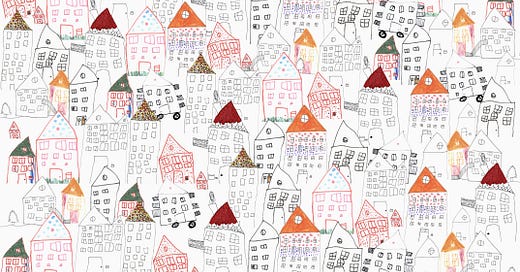This is the mid-week edition of Men Yell at Me. A newsletter about the places where our politics and policies meet. I am not sponsored by a corporation. I don’t sell ads. I am supported by readers, like you. So, if you’d like to support this enterprise, subscribe.
This summer, I was standing in Menards looking at bags of grout. There was pre-mixed grout …




